..."How to Write A Letter" and other things I don't do...
Often, the things that I teach to my students are relevant to my own life. Sometimes they are neither relevant to my life or to theirs. Hopefully that doesn't happen too often. Yesterday I was reading an excerpt with my Grade 6s from their Literature textbooks. I thought it was hilarious. My students kept asking me why I was laughing. (Could this be a theme - people asking me why I'm laughing?) I thought I would share with you the set of instructions written by
Garrison Keillor titled
"How to Write A Letter." (Garrison Keillor is the American equivalent of Stuart McLean) Enjoy!
[The] Same thing that moves a giant rock star to sing his heart out in front of 123,000 people moves us to take ballpoint in hand and write a few lines to our dear Aunt Eleanor. We want to be known. We want her to know that we have fallen in love, that we quit our job that we’re moving to New York, and we want to say a few things that might not get said in casual conversation: Thank you for what you’ve meant to me, I am very happy right now.
The first step in writing letters is to get over the guilt of not writing. You don’t “owe” anybody a letter. Letters are a gift. The burning shame you feel when you see unanswered mail makes it harder to pick up a pen an makes for a cheerless letter when you finally do. I feel bad about not writing, but I’ve been so busy, etc. Skip this. Few letters are obligatory, and they are Thanks for the wonderful gift and I’m terribly sorry to hear about George’s death and Yes, you’re welcome to stay with us next month, and not many more than that. Write those letters promptly if you want to keep your friends. Don’t worry about the others, except love letters, of course. When your true love writes, Dear Light of My Life, Joy of My Heart, O Lovely Pulsating Core of My Sensate Life, some response is called for.
Some of the best letters are tossed off in a burst of inspiration, so keep your writing stuff in one place where you can sit down for a few minutes and (Dear Roy, I am in the middle of a book entitled We Are Still Married but thought I’d drop you a line. Hi to your sweetie, too) dash off a note to a pal. Envelopes, stamps, address book, everything in a drawer so you can write fast when the pen is hot.
A blank white eight-by-eleven sheet can look as big as Montana if the pen’s not so hot – try a smaller page and write boldly. Or use a note card with a piece of fine art on the front; if your letter ain’t good, at least they get the Matisse. Get a pen that makes as sensuous line, get a comfortable typewriter, a friendly word processor – whichever feels easy to the hand.
Sit for a few minutes with the blank sheet in front of you, and meditate on the person you will write to, let your friend come to mind until you can almost see her or him in the room with you. Remember the last time you saw each other and how your friend looked and what you said and what perhaps was unsaid between you, and when your friend becomes real to you, start to write.
Write the salutation – Dear You – and take a deep breath and plunge in. A simple declarative sentence will do, followed by another and another and another. Tell us what you’re doing and tell it like you were talking to us. Don’t think about grammar, don’t think about lit’ry style, don’t try to write dramatically, just give us your news. Where did you go, who did you see, what did they say, what do you think?
If you don’t know where to being, start with the present moment: I’m sitting at the kitchen table on a rainy Saturday morning. Everyone is gone and the house is quiet. Let your simple description of the present moment lead to something else, let the letter drift gently along.
…Don’t tear up the pate and start over when you write a bad line – try to write your way out of it. Make mistakes and plunge on. Let the letter cook along and let yourself be bold. Outrage, confusing, love – whatever is on your mind, let it find a way to the page. Writing is a mean of discovery, always, and when you come to the end and write Yours ever or Hugs and kisses, you’ll know something you didn’t when you wrote Dear Pal.
Probably your friends will put your letter away, and it’ll be read again a few years form now – and it will improve with age. And forty years from now, your friend’s grandkids will dig it out of the attic and read it, a sweet and precious relic of the ancient eighties that gives them a sudden clear glimpse of you and her and the world we old-timers knew. You will then have created an object of art. Your simple lines about where you went, who you saw, what you said, will speak to those children and they will feel in their hearts the humanity of our times.
You can’t pick up a phone and call the future and tell them about your times. You have to pick up a piece of paper.
Now if only I could find a pen which draws a sensuous line...




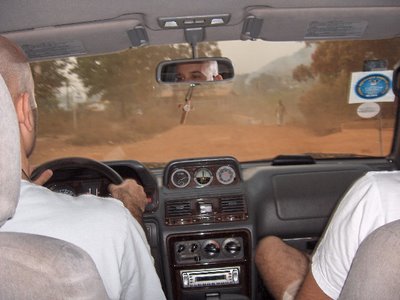

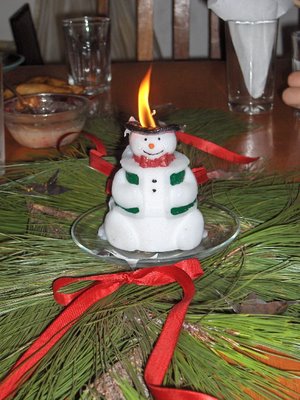
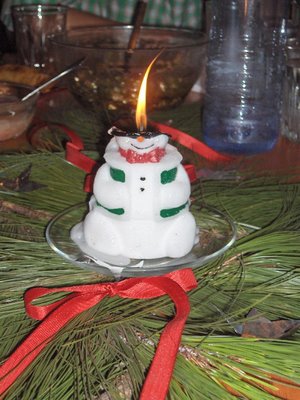
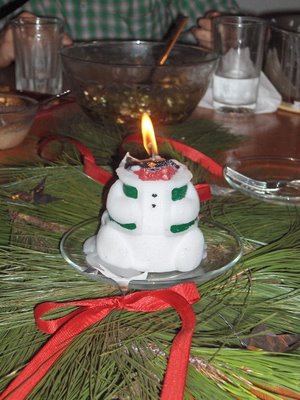
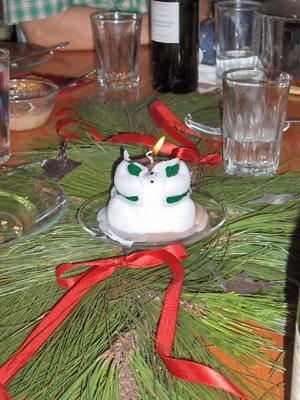
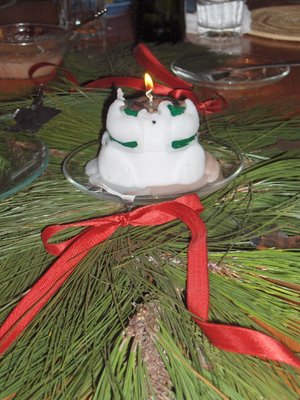
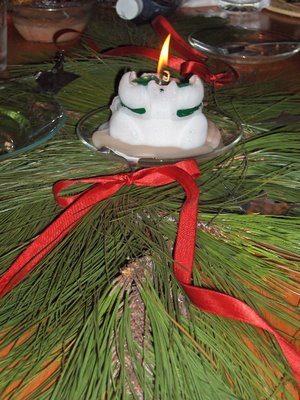
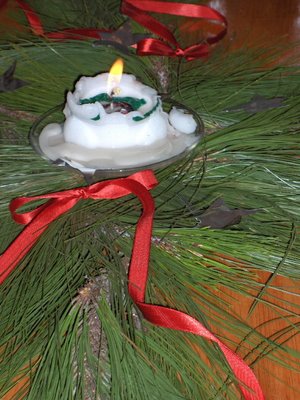
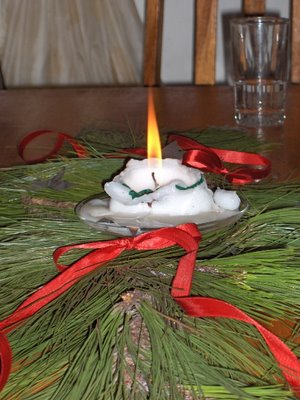
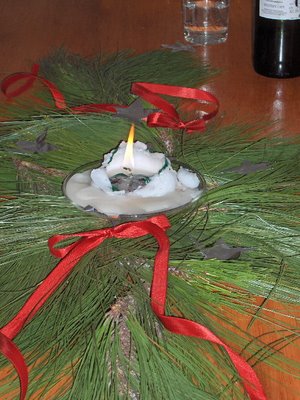
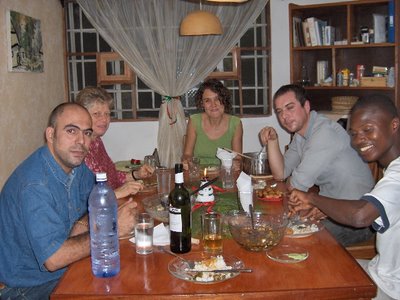
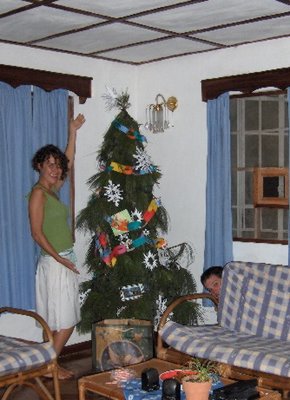
 Festive! (that's my friend Kevin on the left)
Festive! (that's my friend Kevin on the left)


